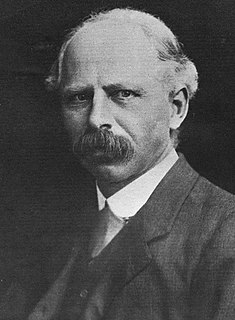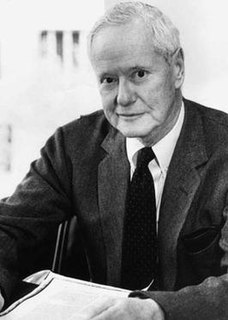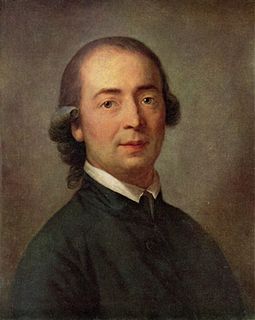A Quote by Leonard Trelawny Hobhouse
The organizer of industry who thinks he has 'made' himself and his business has found a whole social system ready to his hand in skilled workers, machinery, a market, peace and order - a vast apparatus and a pervasive atmosphere, the joint creation of millions of men and scores of generations. Take away the whole social factor, and we have not Robinson Crusoe with his salvage from the wreck and his acquired knowledge, but the native savage living on roots, berries and vermin.
Quote Topics
Acquired
Apparatus
Atmosphere
Away
Berries
Business
Creation
Factor
Found
Generations
Hand
Himself
His
Industry
Joint
Knowledge
Living
Living On
Machinery
Made
Market
Men
Millions
Native
Order
Organizer
Peace
Pervasive
Ready
Robinson
Robinson Crusoe
Roots
Salvage
Savage
Scores
Skilled
Skilled Workers
Social
Social System
System
Take
Thinks
Vast
Vermin
Whole
Workers
Wreck
Related Quotes
Smith, as we have said, was not the proponent of any one class. He was a slave to his system. His whole economic philosophy stemmed from his unquestioning faith in the ability of the market to guide the system to its point of highest return. The market — that wonderful social machine — would take care of society's needs if it was left alone. "Consumption is the sole end and purpose of all production," he wrote.
To take from one because it is thought that his own industry and that of his father's has acquired too much, in order to spare to others, who, or whose fathers have not exercised equal industry and skill, is to violate arbitrarily the first principle of association-the guarantee to every one of a free exercise of his industry and the fruits acquired by it.
The market steers the capitalistic economy. It directs each individual's activities into those channels in which he best serves the wants of his fellow-men. The market alone puts the whole social system of private ownership of the means of production and free enterprise in order and provides it with sense and meaning.
Consider him in his highest incarnation: the university professor. What is his function? Simply to pass on to fresh generations of numskulls a body of so-called knowledge that is fragmentary, unimportant, and, in large part, untrue. His whole professional activity is circumscribed by the prejudices, vanities and avarices of his university trustees, i.e., a committee of soap-boilers, nail manufacturers, bank-directors and politicians. The moment he offends these vermin he is undone. He cannot so much as think aloud without running a risk of having them fan his pantaloons.
Only when he has published his ideas and findings has the scientist made his contribution, and only when he has thus made it part of the public domain of scholarship can he truly lay claim to it as his own. For his claim resides only in the recognition accorded by peers in the social system of science through reference to his work.
The first responsibility of the Muslim is as teacher. That is his job, to teach. His first school, his first classroom is within the household. His first student is himself. He masters himself and then he begins to convey the knowledge that he has acquired to the family. The people who are closest to him.
Interdependence is and ought to be as much the ideal of man as self-sufficiency. Man is a social being. Without interrelation with society he cannot realize his oneness with the universe or suppress his egotism. His social interdependence enables him to test his faith and to prove himself on the touchstone of reality.
































